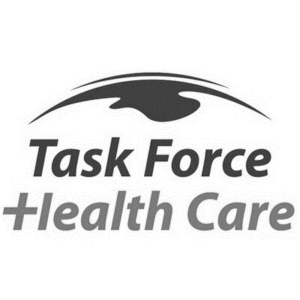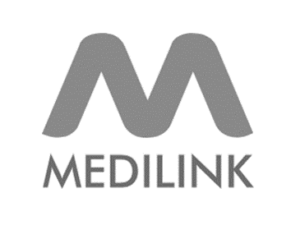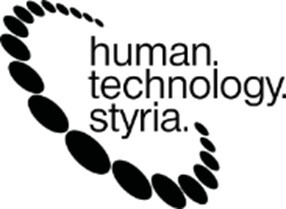Recent advances in Military HealthTech in 2025 are strongly centered on digital transformation, AI integration, wearable technologies, robotics, and advanced trauma care.
Digital Transformation Strategy
Wearables and Remote Monitoring
Robotics and Automation
Advanced Trauma Care and Biodefense
Artificial Intelligence Integration
Digital Transformation Strategy
The Military Health System (MHS) published a comprehensive Digital Health Transformation Strategy in March 2025. This strategy aims to modernize military healthcare by building a digitally competent workforce and integrating AI and machine learning into health services. The focus is on creating an integrated healthcare ecosystem that enhances joint medical capabilities, streamlines operations, supports secure data sharing, and fosters partnerships to innovate care delivery and boost warfighter readiness.
Wearables and Remote Monitoring
Wearable devices are extensively used for real-time monitoring of soldiers’ vital signs, hydration, stress, and fatigue. These wearables enable early intervention to optimize soldier health and readiness. Remote patient monitoring (RPM) has been critical especially since the COVID-19 pandemic, helping military families and veterans in remote areas by providing continuous, decentralized care.
Robotics and Automation
Robotics are being developed for battlefield medical support tasks. Semi-autonomous robots can perform duties such as fetching intubation kits, ventilating patients, and measuring and transmitting vital signs from casualties. These systems promote adaptability between human medics and robotic assistance, enhancing operational efficiency and team coordination in complex battlefield environments.
Advanced Trauma Care and Biodefense
Emerging trauma care innovations include advanced wound care, biodegradable bandages, and self-healing materials designed for field hospitals and mobile medical units. Defence-funded research is also focusing on epidemic preparedness, rapid pathogen detection, and protective medical countermeasures, blending military advances with civilian healthcare benefits.[9]
In summary, Military HealthTech in 2025 is characterized by a strategic shift to digitally enabled, AI-powered, wearable, robotic, and advanced materials-based approaches that collectively improve healthcare delivery for service members while also influencing civilian medical technology.
Artificial Intelligence Integration
AI is rapidly transforming military healthcare through:
- Predictive analytics for proactive and personalized care.
- Enhanced diagnostic precision via machine learning on medical images and patient data.
- Administrative efficiency improvements.
- AI-driven training simulations for medical personnel readiness.
The groundwork was laid in 2024, with over 120 active AI projects identified, spanning mental health, radiology image processing, genomics, natural language processing, and generative AI applications for education and training. Challenges such as data security, ethics, and interoperability remain important considerations.
How is AI being used for diagnostics and predictive care in the MHS
AI is being strategically used in the Military Health System (MHS) for diagnostics and predictive care through several key approaches:
AI algorithms analyze vast amounts of military health data to predict health trends and identify potential risks early. This enables proactive interventions and personalized care planning for service members, improving readiness and health outcomes.
Machine learning models enhance diagnostic accuracy by interpreting medical images and patient data with high precision, which reduces misdiagnosis rates. This includes applications in radiology, genomics, and natural language processing of clinical notes, supporting faster and more accurate clinical decisions.
AI automates and streamlines administrative tasks such as scheduling and resource allocation, allowing healthcare providers to focus more on patient care rather than paperwork. This contributes to improved healthcare delivery efficiency in the military context.
AI-Driven Training and Simulation
AI is used to create realistic training scenarios for medical personnel, enhancing their preparedness for battlefield and clinical situations. Generative AI and simulation tools help in continuous medical education and skill building tailored for military needs.
The MHS has made strong efforts to ensure AI applications are trustworthy and ethical, conducting thorough evaluations to identify biases and vulnerabilities in AI systems. This includes a “red teaming” exercise with participation from clinical experts to refine policies on ethical AI use in military medicine.
Summary
Military HealthTech in 2025 is characterized by a strategic shift to digitally enabled, AI-powered, wearable, robotic, and advanced materials-based approaches that collectively improve healthcare delivery for service members while also influencing civilian medical technology.
Overall, AI is transforming military healthcare by enabling early, precise diagnosis and personalized predictive care, while boosting operational and training efficiencies, all under a framework prioritizing responsible AI implementation.
Links
https://www.health.mil/News/Dvids-Articles/2025/05/19/news498328
https://sentikon.com/artificial-intelligence-transforming-military-health-care-in-2025-and-beyond
https://pubmed.ncbi.nlm.nih.gov/40317230
https://getoutpatient.com/blog/8-new-military-health-technologies-in-2023
https://sentikon.com/artificial-intelligence-transforming-military-health-care-in-2025-and-beyond












